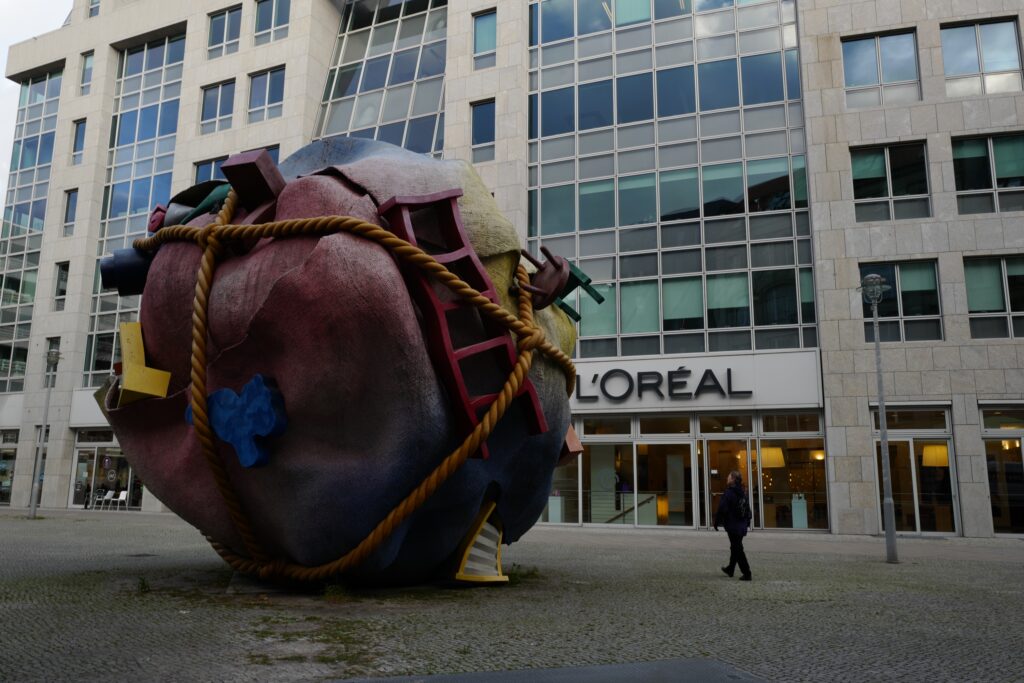The Bundle
Berlin, December 2016
Quote of the Day
”When a writer is born into a family, the family is finished.”
- Czesław Miłosz
Makes me think of Thomas Mann and Buddenbrooks
Musical alternative to the morning’s radio news
Julie Fowlis & Muireann Nic Amhlaoibh | Dá bhFaighfinn Mo Rogha de Thriúr Acu
Hollywood Inn, Co. Wicklow: Scottish Hebrides singer Julie Fowlis & Kerry singer Muireann Nic Amhlaoibh singing ‘Dá bhFaighfinn Mo Rogha de Thriúr Acu’ (0:00), Dhannsamaid Le Ailean (1:24) & Cairistion’ Nigh’n Eoghainn (2:16) with accompaniment from Éamon Doorley (Bouzouki) and Martin Ross.
Long Read of the Day
Joan Bakewell: ‘Life hasn’t got duller as I’ve got older. Less thrilling, perhaps’
She is one of my heroines, and this profile by my colleague Tim Adams does her justice.
Joan Bakewell sees David Attenborough from time to time. He has only one question for her: “Are you still working?” And, of course, she is. When we meet for lunch she is just about to embark on her fifth series of Landscape Artist of the Year for Sky – “Bake Off with oils” – that sees her “galloping around the country” from Loch Fyne to Broadstairs. She puts in 12-hour shifts beginning at seven in the morning – “by 7pm they know I’m ready for a drink”. She’s also in the House of Lords two or three days a week, when it is sitting, and she’s the president of Birkbeck, University of London. And then there are always new committees to chair, books to write. One of the reasons that Bakewell has long been such a seductive voice for the possibilities of ageing is that she has never shown the slightest interest in being past it.
She breezes into her chosen restaurant, the Orrery on London’s Marylebone High Street, already full of talk and smiles as she sits down, having done a bit of shopping downstairs in the Conran shop. The Orrery has the decor of a Dignitas clinic, white and hushed, with good linen and sharp cutlery and pristine glassware, but Bakewell brings with her a life-affirming attention. She is, you immediately forget, 89. She orders precisely – mozzarella to start and salmon fillet, water – and then gets on with the real business of lunch, conversation. Before our starters arrive we have discussed the voodoo nature of Nadine Dorries (“she sticks pins into stuff she doesn’t like”), the leadership prospects of Andy Burnham (“very impressive in person”), food fads (“I’m done with sourdough, give me a nice sliced white loaf”), the similarities between Liverpool in the 1960s and Quattrocento Florence (“creativity became infectious”), and the little pot of cod liver oil and malt that Bakewell always keeps in a drawer to remind her of stolen spoonfuls of comfort during rationing…
I’ve known her ever since I was the Observer’s TV critic many years ago. There’s only one word to describe her: life-enhancing.
The cost of convenience
My OpEd in last Sunday’s Observer. In our Gadarene rush into the Internet of Things we are busily creating an attack surface of near-infinite dimensions.
Ever since people started to worry about computer safety, the issue has been framed as striking a balance between security and convenience. Up to now, convenience has been winning hands down. Take passwords. Everyone knows that long, complex passwords are more secure than simple ones, but they’re also hard to remember. So, being human, we don’t use them: in 2021, the five most commonly used passwords were: 123456, 123456789, 12345, qwerty and password.
In the era of mainframe computers and standalone PCs, this kind of laxity didn’t matter too much. But as the world became networked, the consequences of carelessness have become more worrying. Why? Because there is no such thing as a completely secure networked device and we have been adding such devices to the so-called Internet of Things (IoT) on a maniacal scale. There are something like 13bn at the moment; by 2030, the tech industry thinks there might be 30bn.
The conventional adjective for these gizmos is “smart”. They can be “hi-tech” items such as smart speakers, fitness trackers and security cameras, but also standard household things such as fridges, lightbulbs and plugs, doorbells, thermostats and so on. From a marketing point of view, their USPs are flexibility, utility and responsiveness – in other words, convenience.
But smart is a euphemism that tactfully conceals the fact that they are tiny computers that are connected to the internet and can be remotely controlled from a smartphone or a computer…
Do read the whole thing
My commonplace booklet
The rent for the five-bedroom Georgian mansion overlooking St James’s Park featured in yesterday’s edition is… £10,000 per week.
This Blog is also available as a daily email. If you think that might suit you better, why not subscribe? One email a day, Monday through Friday, delivered to your inbox. It’s free, and you can always unsubscribe if you conclude your inbox is full enough already!

